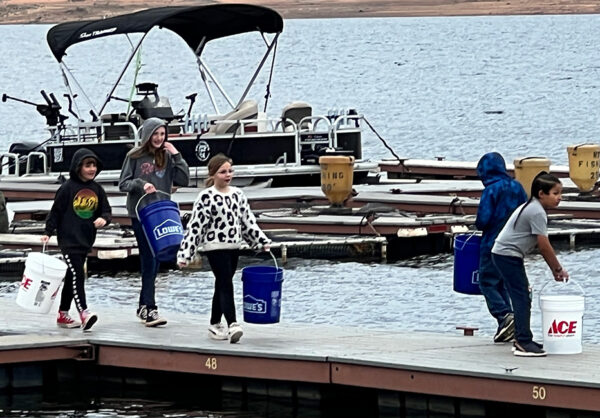Project-Based Learning
Meaningful Connection and Involvement
YES defines success for our community through meaningful connection and involvement. We desire that students are connected to their community and that the community is invested in the future of its children. We measure success through community involvement in YES initiatives, and YES students engage in learning through community initiatives.
We deliver on this through project-based learning.
All YES classes select a theme based on an environmental issue and develop a driving question. They reach out to community agencies, organizations, and experts to create units of study focused on key learning and projects. Teachers invite local experts to present to their classes about their project theme and organize field trips for students to participate in community initiatives.
Key data for defining success includes the depth and longevity of community connections and the quality of the final product from the initiative. These final products are presented at a YES-sponsored Earth Day community celebration each April.
Academic achievement in ELA, math, science, and social studies is also measured as students grow as readers, writers, mathematicians, and problem solvers when engaged in meaningful work. Examples:
TK/K question: How can we live in harmony with plants, animals, and insects?
Community Connection: Master Gardeners
Projects & Key Learning: Plant and tend a flower garden; Plant a vegetable garden; Harvest, prepare, and eat the vegetables.
Grade 1 question: How can we help endangered pollinators and their habitats?
Community Connection: Yuba Resource Conservation District, Fire Safe Council, CA Climate Action Corps, Keep CA Beautiful, SayLove
Projects & Key Learning: Establish and care for a certified Monarch Watch Monarch Waystation of 500 Milkweed plants adjacent to our campus. Sixty members of the community participated in the planting day. CBS NEWS REPORT
Grade 2 question: How can a community feed itself sustainably?
Community Connection: Yuba Foothills Agricultural Community Association (YFACA)
Projects & Key Learning: Invite YFACA members to the YES Earth Day celebration to teach a gardening lesson, such as seed saving, to the community members in attendance. Study seed saving with YFACA members.
Grade 3 question: How did people live sustainably for 10,000 years using the resources in the local area?
Community Connection: Michael Thompson, Executive Director of Tribal Development, Enterprise Rancheria
Projects & Key Learning: Invite a Maidu elder to teach them about respect and reciprocity with the Earth’s natural resources. Visit a Maidu village in Nevada County. Study Native American crafts and traditions related to sustainable living.
Grade 4 question: What do microscopic organisms and macroinvertebrates reveal about the health of our Yuba River Watershed? How can this knowledge help us protect our watershed and its inhabitants, like the Chinook Salmon?
Community Connection: Yuba Water Agency. South Yuba River Citizen’s League (SYRCL). Sierra Streams Institute (SSI).
Projects & Key Learning: Participate in a rafting trip on the Yuba River to observe salmon spawning areas, macroinvertebrates, aquatic life, water quality, and habitat health. Visit Feather River Fish Hatchery to observe salmon migration and salmon egg harvesting. Visit the salmon habitat restoration site at Spenceville Wildlife Area and participate in a pilot of the Watershed Communication Toolkit (EPA Grant)
Grade 5 question: What is the human impact of interactions and interventions with Earth’s systems?
Community Connection: Sierra Streams Institute (SSI) EPA Environmental Education grant
Projects & Key Learning: Measure air quality. Learn about local forestry and land management practices. Visit the salmon habitat restoration site at Spenceville Wildlife Area and participate in a pilot of the Watershed Communication Toolkit (EPA Grant).
Grade 6 question: How can we mitigate food waste?
Community Connection: Hunger Action Heroes, Program and Curriculum. Recology.
Projects & Key Learning: Measure food waste at the YES cafeteria. Reroute food waste for methane gas reduction.
Grade 7 question: How can we divert trash from our school and community from landfills?
Community Connection: Recology
Projects & Key Learning: Field trips to the landfill. Enterprise project to design and create pet beds out of plastic trash.
Grade 8 question: How can we design and build structures to mitigate the effects of climate change?
Community Connection: Yuba Water Agency
Projects & Key Learning: Tour the newly constructed Yuba Water Agency office complex. Observe the materials and design elements that mitigate the effects of climate change.
High School (Grades 9 and 10): Forestry and Natural Resources CTE
Community Connection: Sierra Streams Institute (SSI)
Projects & Key Learning: Study salmon habitat rehabilitation in the Spenceville Wildlife Area.

